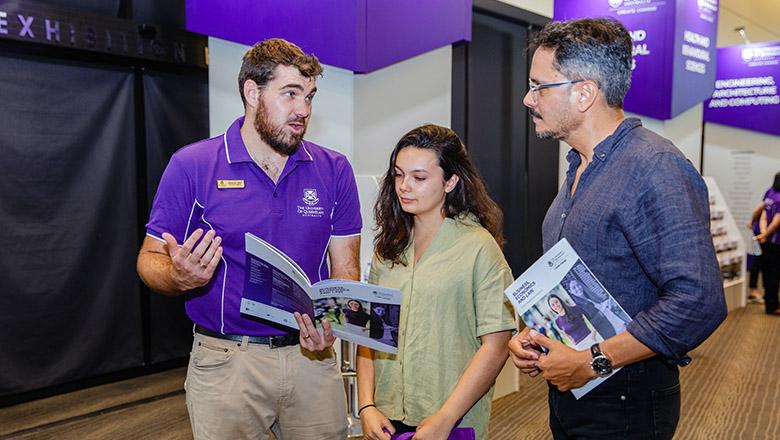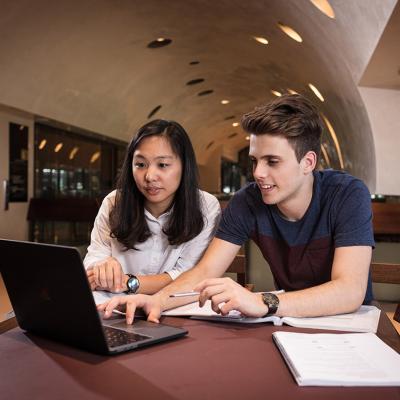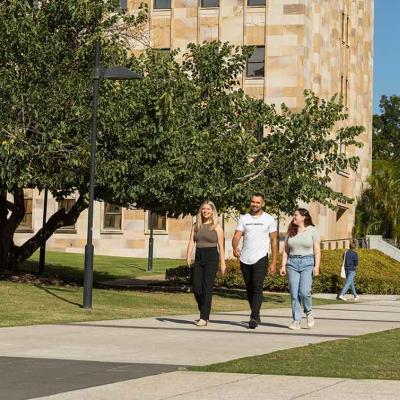As your teen's journey through high school comes to a close and the ATAR release date approaches, you may find yourself worrying about their final results.
It’s important to remember that an ATAR is just a number and doesn’t reflect your teen’s worth or value in the world. It does, however, affect how they get to university.
If your child receives an ATAR lower than they were anticipating, they may need to re-arrange the programs in their QTAC preference list and/or investigate different pathways to their desired program.
Your teen may be feeling disappointed and panicked. Feeling like your dreams are slipping away from you is, understandably, stressful. But there's more than one way to access university.
This article will outline how to get to university with a low ATAR, so you can transform your teen’s exam result anxiety into one of the year’s most impressive low ATAR success stories.
Finding answers to their questions
So, your teen has confronted you with the question “I have a low ATAR, what do I do next?”, and you’re not sure how to answer. Your first point of call should be consulting the experts.
Attend an ATAR advice event
Most universities will hold ATAR advice events soon after results are released, which usually takes place in December.
An ATAR advice event will give you and your child the opportunity to speak with university representatives about the best pathway to university for your teenager’s individual needs. The university staff at these events often answer questions such as “I didn’t get the ATAR I wanted – what do I do now?” and share low ATAR success stories to hearten your teen and offer reassurance that their dreams are still achievable.

If your teen is feeling stressed or unsure about their ATAR, it's a good idea to attend an ATAR advice event. It'll help them explore their pathway options and get connected with people who can support them on their journey to university.
Missed UQ's ATAR Advice event on 18 December 2025? You can still get advice by calling our friendly Future Students Contact Centre.
How to get into university with a low ATAR
What happens if you get a low ATAR depends on how proactive you are about the situation. If your teen doesn’t get the ATAR they needed to get into their preferred program at university, the first thing to remember is to stay calm and offer reassurance. There are multiple pathways to university, so your teen shouldn’t give up on their hopes and dreams just yet.
We asked the UQ Admissions team to share with us the two most common ways for high school leavers to pursue their desired program even though they received a lower ATAR than expected.
Bridging studies
Your teen may be able to undertake bridging studies to improve their selection rank (this is their ATAR or converted IB) and help them meet subject prerequisites to access their desired university program. Bridging studies are particularly helpful for teenagers interested in university degrees with a focus on science and maths. However, the maximum selection rank you can gain from bridging studies varies. If your teen’s desired degree has a high entry score threshold, the tertiary studies pathway may be more suitable for them.
Find out more about your teen's bridging studies options (PDF, 71 KB) to gain entry into an undergraduate program at UQ.

Tertiary studies pathway
A tertiary studies pathway involves:
- enrolling in a program that will accept your teen’s ATAR
- completing a year of study, and then
- applying for the desired program the following year.
This way, your teen’s selection rank will be based on their university grades over the 12 months of undergraduate study, rather than on their ATAR if their university grades convert to a higher rank than their ATAR.
While your teen may not be studying their preferred program while undertaking a tertiary studies pathway, they are usually able to select courses relevant to their desired area of study. They may be able to gain credit for these courses and transfer them to their desired program once enrolled.
Find out more about UQ’s tertiary studies pathway.
What if my teen's ATAR is just shy of what they needed?
If your teen is a few ranks off the ATAR they needed for their desired program, they could make up those additional ranks through adjustments (sometimes called 'bonus ATAR points'). See if the universities your teen is applying to award rank adjustments and whether they are eligible for these.
If your teen preferences a UQ program in their QTAC application, they may be eligible for a maximum of 5 adjustments. As an example, this would bring an ATAR of 80 up to a selection rank of 85 and give the applicant a competitive rank to gain entry into more UQ programs.
Discover what admission schemes and adjustments your teen may be eligible for at UQ.
When we asked the Admissions team what their number one piece of advice would be for parents of teenagers who didn’t receive the ATAR they hoped for, they were quick to offer reassurance.
“Don’t stress! There are more pathways to university than you think. Your teen might have to be flexible and change their initial plans, but they can still get to where they want to be.”
Got more questions about ATAR? Read our article How does ATAR work and what does it mean? to find answers. Or contact our friendly team to chat about your teen's specific circumstances.





